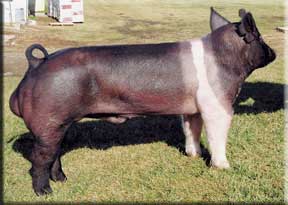From Ronald Aronson's beautiful essay at The Philospher's Magazine:
'But there is an alternative to thanking God on the one hand and seeing the universe as a “cosmic lottery” or as absurd on the other. An alternative to being grateful to a deity or to ignoring such feelings altogether. Think of the sun's warmth. After all, the sun is one of those forces that make possible the natural world, plant life, indeed our very existence. It may not mean anything to us personally, but the warmth on our face means, tells us, and gives us a great deal. All of life on Earth has evolved in relation to this source of heat and light, we human beings included. We are because of, and in our own millennial adaptation to, the sun and other fundamental forces. My moment of gratitude was far more than a moment's pleasure. It is a way of acknowledging one of our most intimate if impersonal relationships, with the cosmic and natural forces that make us possible.'
Saturday, August 26, 2006
gratitude
Posted by
Bill Levine
at
10:31 AM
0
comments
![]()
Monday, July 31, 2006
fishy quote
John D. Morris, PhD (in geological engineering!), the president of the Institute for Creation Research (I refuse to link to these fools), commenting on a soon-to-be-open "Creation Museum" in rural (could it be elsewhere?) Kentucky: "Americans just aren't gullible enough to believe that they came from a fish." Well, duh. I came from my mother. And we all know that it's Canadians that come from fish.
The Yahoo! news story about this non-event can be read here.
The most-fun part of all of this is the museum's store, where you can purchase the illustrated Zoo Guide: A Bible-Based Handbook to the Zoo for just $12.99. Is it any wonder that so many children in the USA are so stupid?
Posted by
Bill Levine
at
2:04 PM
0
comments
![]()
Thursday, June 15, 2006
Tuesday, June 13, 2006
HOOAH!
Occasionally it's a good idea to visit McSweeney's, especially for the REVIEWS OF NEW FOOD, where I learned of a new energy bar (noted by contributor Tony Antoniadis) invented by our esteemed military. Here's a description, straight from the mouth of the beast (not Tony; the military):
The HOOAH! bar exists.
This is no joke. You can buy HOOAH!s on Amazon.com or at your local 7-Eleven, CVS, Wal-Mart (though sadly not at the Wal-Marts here in Wal-Mart's home state just yet - I'm only partly kidding about the "sadly" part ... my desk drawer is currently the home of eight different energy bars or variants thereof), and even at my beloved Wegmans. (More about Wegmans eventually. If you think that your hometown do-it-all grocery store is better, you've got another thing coming. Wegmans rocks.)
Reading about the HOOAH! bar reminded me of Kevin Baker's "We're in the Army Now: The G.O.P.'s Plan to Militarize Our Culture " - from the October, 2003, issue of Harper's Magazine. I was about to get bummed that Harper's hasn't archived it, but then found that Baker has archived it here. In this article, Baker labels the Republicans the "Party of Huah" and paints a portrait of the militarization of USA culture. It's worth a read.
Posted by
Bill Levine
at
1:20 PM
0
comments
![]()
taking some stats
I'm signed up for courses and I'm taking some stats ...
From the University of Oregon Psychology Department. More credit where it's due when I find out more about this lovely video.
Posted by
Bill Levine
at
10:47 AM
0
comments
![]()
Tuesday, June 06, 2006
mysterious ways II
Lioness in zoo kills man who invoked god. "A man shouting that God would keep him safe was mauled to death by a lioness ... [an] official said, 'A lioness went straight for him, knocked him down and severed his carotid artery.'"
Posted by
Bill Levine
at
9:03 AM
0
comments
![]()
Thursday, June 01, 2006
mysterious ways
Woman hit by lightning while praying. "Worried about the safety of her family during a stormy Memorial Day trip to the beach, Clara Jean Brown stood in her kitchen and prayed for their safe return as a strong thunderstorm rumbled through Baldwin County, Alabama ... She said 'Amen' and the room was engulfed in a huge ball of fire. The 65-year-old Brown said she is blessed to be alive."
Posted by
Bill Levine
at
12:01 AM
0
comments
![]()
Tuesday, May 30, 2006
hot dog!
 The Oscar Meyer Weinermobile TM, which drove by me as I walked to work today. I'm inordinately excited about this. The poor image quality is due to my camera-phone. (Why is camera-phone preferred over phone-camera?)
The Oscar Meyer Weinermobile TM, which drove by me as I walked to work today. I'm inordinately excited about this. The poor image quality is due to my camera-phone. (Why is camera-phone preferred over phone-camera?)
Posted by
Bill Levine
at
1:05 PM
0
comments
![]()
Friday, May 26, 2006
pig spunk
 Lean Value Sires is "America's largest supplier of showpig semen". On the site's front page is a QuickTime movie of Catwalk (that's him to the left), a very well-endowed exotic boar. Play the movie. The first shot is a slow zoom right onto Catwalk's enormous scrotum. Names for some of the other boars: Money Shot; Depth Charge; Hammer; and Explode. It's pig porno.
Lean Value Sires is "America's largest supplier of showpig semen". On the site's front page is a QuickTime movie of Catwalk (that's him to the left), a very well-endowed exotic boar. Play the movie. The first shot is a slow zoom right onto Catwalk's enormous scrotum. Names for some of the other boars: Money Shot; Depth Charge; Hammer; and Explode. It's pig porno.
There's a lot out there that I'll never know much about. But, thanks to Harper's Magazine, now I know a little more about artificial insemination in pigs. Check out "Swine of the Times" in the May issue (not available online, unfortunately). In addition to telling the story of Lean Value Sires, the article also discusses Sleezer Fertility Center, another supplier of pig semen. Whereas Lean Value prizes diversity among its boars, Sleezer (gotta love the name) prizes genetic homogeneity. The article, by Nathanael Johnson (his site on Public Radio Exchange), is an entertaining, detailed look at this part of the pork industry. One of Johnson's goals throughout the article is to find someone masturbating a boar; he succeeds. It's not nearly as erotic as you might think. The article reads very much like a chapter in Eric Schlosser's Fast Food Nation. It, along with a confluence of other readings I've done recently, have me thinking a lot about what I eat. More about that in a few days.
Posted by
Bill Levine
at
10:19 PM
0
comments
![]()
Thursday, May 25, 2006
Water
My beloved CAB departed for Spain on Monday. Sunday we drove to St. Louis and, that evening, we went to see Water, Deepa Mehta's new movie. SPOILER ALERT!
Water's story is about widowed (Hindu) women in India, and the cloistered life that they led (and apparently still lead, at least to some extent). The story is set in 1938, just prior to India shedding its British shackles. Chuyia is the nominal protagonist, an 8-year-old widow who is taken by her father in the movie's opening scenes to live with a group of widows in an ashram, largely in isolation from the rest of society. Chuyia's head is shaved and she wears a garment that marks her as a widow. The other widows in the ashram are a diverse group. Several play important roles, but of particular importance is Kalyani (portrayed by Lisa Ray), a beautiful widow in her 20s. She is the only widow allowed to maintain her personal beauty (i.e., her hair is unshorn), but this is because she is prostituted by the nominal leader of the widows (a sort of head mother) to make money for the ashram. Kalyani, because she is exposed to the outside world, and is strikingly lovely, is courted by a man named Narayana. Narayana is educated (a lawyer), a member of a higher caste, but very progressive, a follower of Gandhi (a major character in the movie, though he makes an appearance in only one scene) and the push for Indian independence.
The juxtaposition of Chuyia's plight and Kalyani's story allows writer and director Mehta to tell the story of religious and cultural oppression that comes from within and without. The main theme of the movie, pounded home in many ways, is that women were (and are) treated like chattel. The widows lead a life of self- and other-imposed destitution. One of the widows, Shakuntala, is ever trying to understand the point of the widows' isolation, but is never able to walk away from it the way that Kalyani attempts to. (Kalyani meets a terrible fate that is due to the perverse interaction of the caste system and her prostitution.) Shakuntala, though, in the movie's climactic scene, attempts to preserve some kind of future for Chuyia, who is next in line to be prostituted. Shakuntala puts Chuyia in Narayana's arms as he departs on a train with Gandhi and his followers, a train headed for the future.
Oddly, despite the destitution of the widows' lives, there is a sense of community and family among them. Kalanyi provides money for a funeral pyre for an old widow, "Auntie". Auntie's husband died when she was but a child, and her life has been filled with memories of her wedding day when she ate sweets that she can now only imagine. In one of the movie's most touching scenes, Chuyia buys a ladoo for the old widow just before she dies. There are many other aspects of the depiction of the widow's life that suggest that their destitution is not experienced as such. This, combined with the beautiful cinematography, is jarring in contrast to the movie's main themes, and may be a slight weakness (along with the too dramatic ending). But it is a fine film.
Posted by
Bill Levine
at
1:34 PM
0
comments
![]()


